Digestive Issues
Many people suffer from digestive issues in some form during their lifetime. Fortunately, there are many foods that can help alleviate or eliminate these issues. Before running to the pharmacy to alleviate your discomfort, try these nutritional tips first.
Constipation
Constipation is a common problem that occurs regularly with many people not realizing they are constipated until their condition becomes very uncomfortable. Aside from consuming the foods mentioned below, be sure to use the restroom when you need to instead of waiting as this contributes to constipation. Additionally, stress has been shown to contribute to digestive issues, including constipation.
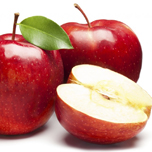
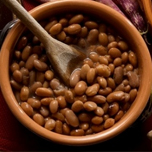
Apples
This fruit is an excellent choice to help prevent and relieve constipation. Apples contain both soluble and insoluble fiber which aids in relief. Apples also contain sorbitol, a naturally occurring sugar alcohol which has a mild laxative effect.
Beans and Legumes
Another food that is full of fiber, beans can be swapped out for meat in many dishes. Since fiber is not found in animal products, try reducing some meat in your favorite dishes and adding beans for added fiber.
Beets
This vegetable should be cooked lightly to maintain all its wonderful health benefits. Along with a healthy serving of fiber, beets are also great for the colon. The tops of beets (the greens) can also be cooked like spinach, but are even better if used as part of a smoothie.
Cabbage
This often forgotten vegetable has been known to relieve constipation. Be sure to eat raw to keep all its nutritious properties (juicing is a great option). Cabbage has also been known to cause flatulence in individuals not used to eating it, so start with a small amount at first.
Dandelion Root Tea
This bitter tea can be purchased at health food stores and some grocery stores. A glass of this tea acts as a natural, mild laxative. If the flavor is too strong you can try making a drink from 1 tea bag, 60 oz. of filtered water, 1 tablespoon of natural cranberry juice and 2 tablespoons of fresh lemon juice. Drink throughout the day. Do not take dandelion root tea for more than a week in a row.
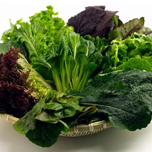
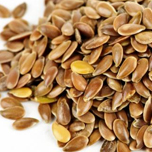
Dark Leafy Greens
Full of fiber, dark leafy greens are beneficial for overall health and wellness. Dark Leafy greens are full of vitamins, minerals and antioxidants which are great for the body. Examples include arugula, kale, spinach, lettuce and collard greens. These wonderful foods are also a great source of natural fiber. The best way to ensure getting enough of them in your daily diet is by drinking green smoothies.
Flax Seed
Full of fiber, this seed can be purchased at health stores and many grocery stores. To aid in prevention of constipation try adding 1-4 tablespoons of flaxseed to your diet every day. Be sure to begin with less and slowly increase consumption as adding too much to ones diet too quickly will result in bloating and flatulence. The best way to consume flax seeds is by grinding them fresh. Keep them refrigerated as they can spoil fairly quickly.
Prunes
This dried fruit contains both soluble and insoluble fiber as well as sorbitol. Insoluble fiber helps pass stools quickly through the intestines. Soluble fiber aids in absorption of nutrients from food. The fiber also stimulates the intestines. Sorbitol draws water into the colon, making stools softer and easier to pass.
Water
One of the best things you can do to help become “regular” is to drink adequate water. Many people are dehydrated and don’t even realize it. Try aiming for at least 60 oz. a day to help prevent constipation and normalize bowels. Remember that by the time you feel thirsty your body is actually starting to dehydrate.
Reflux
For individuals suffering from Gastro esophageal reflux disease (also known as GERD or reflux for short) how and when you eat are just as important as what you eat. Be sure not to eat too quickly or right before going to sleep. Avoid foods that are acidic such as tomatoes and oranges. It is very important to avoid sodas of any kind since soda is very acidic. The following foods are low in acidity and can help alleviate or prevent reflux.
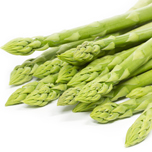
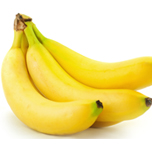
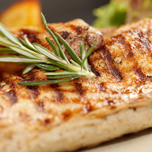
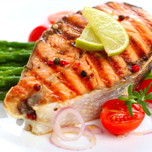
Asparagus
This vegetable is low in acidity and calories, making it an excellent choice. Other vegetables that are low in acidity include broccoli, green beans, celery and cauliflower.
Brown Rice
This grain is complex carbohydrate that is not acidic but is highly nutritious. Brown rice can be easily incorporated into many meals.
Bananas
This fruit is pH neutral and helps suppress acid secretion in the stomach. Full of potassium, bananas offer many other health benefits. Be sure to choose bright yellow bananas when treating reflux as over ripe bananas do not have the same effect.
Chicken
Boneless, skinless chicken breast contains protein and nutrients that reflux sufferers do not have a problem eating. Be sure to prepare without added oils or high fat sauces as these do not help reflux.
Fish
This protein source has been found to help reflux sufferers. Be sure to eat grilled, poached or baked. Avoid fried versions.
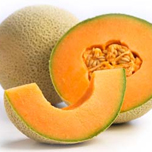
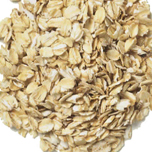
Ginger
Fresh ginger has many gastrointestinal health benefits. Also used to treat nausea, ginger has been found to aid in reflux treatment.
Melons
These fruits are low in acidity and high in magnesium, a mineral that aids in reflux treatment. Honey Dew, Cantaloupe and Watermelon are all excellent choices.
Oatmeal
This mighty grain not only helps to keep you full due to its fiber content but also helps absorb acid. If eating oatmeal for breakfast doesn’t appeal to you, it can also be added in other foods such as smoothies or a replacement for bread crumbs. Be sure to buy the whole grain version and not the instant kind.
Potatoes
This complex carbohydrate is perfect for those suffering from reflux. For all the health benefits be sure to wash thoroughly and consume the skin as well. Avoid unhealthy toppings such as sour cream and cheese, as high fat food have been known to aggravate reflux.
Gastritis
Inflammation of the stomach lining, also known as gastritis can occur gradually or over time. Luckily, the pain, discomfort, indigestion and nausea often related to gastritis can be controlled through diet and proper health. To prevent gastritis be sure to avoid long term use of NSAIDs (such as ibuprofen or naproxen), coffee, drugs and alcohol. Stress management is also crucial in both prevention and treatment of gastritis. Below you will find foods that will help to manage gastritis. Remember, that every person life’s style may affect the absorption of nutrients in a different way, so if a food irritates your stomach be sure to eliminate it from your diet.


Apples
This wonderful fruit has so many positive benefits. Aside from being full of fiber (which is great for those suffering from gastritis) it also contains flavonoids, plant metabolites that have antioxidant effects. These flavonoids may also inhibit the growth of H. pylori, the bacteria often associated with gastritis.
Cruciferous Vegetables
Sulforaphane, a molecule found in broccoli and other cruciferous vegetables such as cabbage and Brussels sprouts has an antibacterial effect on H. pylori and also contain other positive health benefits. One of the best sources of sulforaphane is found in broccoli sprouts, a vegetable that looks similar to alfalfa sprouts.
Probiotic Yogurt
The active cultures found in probiotic yogurts help to regulate the bacteria in the gut which can be especially beneficial for those suffering from bacteria induced gastritis. When choosing yogurts be sure to purchase one without added sugars, gelatin or sweeteners. Instead, try adding some to a fruit smoothie. You may be surprised at how easy it is to add this beneficial food to your diet.
Lean Meats
Foods high in fat can further irritate the stomach so consume lean meats such as skinless chicken breast, cold water fish, and lean turkey for sources of protein.
Beans
These legumes are an excellent source of protein and can be prepared in a number of ways. Bean are also high in calcium and B vitamins which are beneficial for overall health.
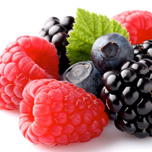
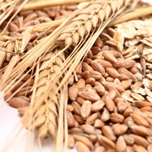
Cranberries
This fruit is also full of flavonoids and has been found to help fight infection. Be sure to test your tolerance for cranberries first as it may be too acidic for some gastritis patients.
Whole grains
Whole wheat pasta, barley, brown rice and quinoa are just a few examples of whole grains that are great for gastritis sufferers. Refined and processed white carbohydrates should be replaced with whole grains due to the added stress that processed foods has on the stomach.
Water
Drink plenty of water daily and be sure to completely eliminate any beverage that further irritates the stomach lining and increases acid production. These include coffee, soda and other carbonated drinks.
Colitis
Colitis is inflammation of the colon. It is categorized as either mucus colitis(Produce it by the absences of F.Prausnitzi bacteria that use fibers and help the colon to produce mucus that protect the intestines from contacting bacterias) or ulcerative colitis which is a severe form of colitis, with this condition there is ulceration of the mucosa of the colon it can cause fatigue, weight loss, and abdominal pain and discomfort among other distressful symptoms. Diet for this condition is different from a regular form of colitis; here we’ll focus on just the mucus colitis. Good nutrition is an important part of the treatment for colitis. For some people, this alone may facilitate improvement. Frequent small meals are highly recommended. Stress reduction plays an important part in treatment as well.
Drink plenty of liquids to prevent fluid and electrolyte imbalance. A high fiber diet is also recommended. When it comes to fresh fruits try one at a time to test your tolerance.
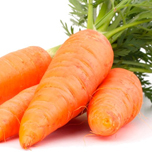

Aloe Vera Juice
This juice is very healing for the mucosa of the intestines, mix it with fresh fruit juices, half and half ratios. Drink one cup in the morning and one cup before bedtime.
Carrots & Beets
You can eat juiced, chopped or shredded on a raw salad raw or slightly steamed. They are a great source of beta carotene which the body converts to vitamin A, which is necessary for tissue repair.
Beans
These legumes are an excellent source of protein, fiber, calcium and B vitamins.
Kefir
This yogurt-type drink is beneficial because it provides the body with important live cultures and helps colonize healthy bacteria in the gut. Kefir is great for adding extra support to the immune system which many ulcerative colitis sufferers need help with.
Plantain
Studies have shown that the soluble fiber from this green banana creates an environment that resists inflammatory bacteria. Try baking, boiling or sautéing this fruit in a little coconut oil for a tasty snack.
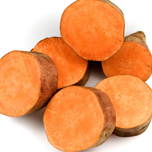
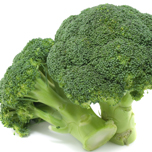
Kale, Parsley, Beet Greens
These are all great sources of calcium.
Potatoes and Sweet Potatoes
These root vegetables often get a bad reputation due to being a starchy carbohydrate. But potatoes in all their varieties add great diversity to meals and carry nutritional benefits while also being easy on the digestive system.
Brown Rice
This food is full of fiber and has some protein.
Broccoli, Lettuce, Cabbage and Spinach
Great sources of vitamin K, and bioflavonoids.
Watermelon
With high water content this fruit is easy and quick to digest. Begin with a small amount at a time to see how well your body is able to handle this fruit or try adding to a smoothie.
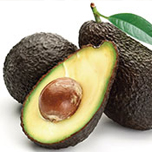

Good Fats
Good fats can come in the form of seeds and nuts, avocados, extra virgin olive oil, organic virgin coconut oil, flax meal or oil.
Whole Grains
Try to consume in sprouted form; they tend to be a little bit pricey but are well worth it.
©2021 Phytotherapi. All rights reserved.
